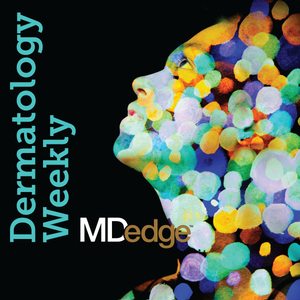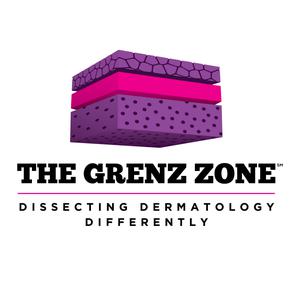
Dermatology Weekly
Medscape Professional Network
Dermatology news & pearls for the clinical healthcare professionals.
- 54 minutes 29 secondsResidency match during the COVID-19 pandemic
The COVID-19 pandemic has presented unique challenges for medical students applying to residency programs. In this episode, Candrice R. Heath, MD (@DrCandriceHeath), talks to Virginia Alvarado Jones, MD, MS (@GinaAlvaJones), and medical student Victoria Humphrey (@VictoriaSHumphrey) about their experience navigating the dermatology residency Match process during this application cycle. They provide tips and takeaways for the next group of applicants, including how to adapt to the virtual interview process and connect with mentors and fellow residents without regular in-person contact.
Dr. Heath also talks to residency program director Ilana Rosman, MD (@ilanarosman), about how the past year has opened the door for much needed changes in the residency application process (begins at 28:50). “We had two pandemics this year, right? We have COVID, and we have racial injustice. And I think that's not new. That's obviously not new at all. But I think it really has come to the forefront. And I think those two things together have made all of us much more cognizant of how we go about the process of residency selection and application making sure that we can make it equitable, inclusive, and sustainable moving forward,” Dr. Rosman says. They also discuss a holistic approach to reviewing residency applicants and virtual mentorships.
* * *
Host: Candrice R. Heath, MD (Temple University Hospital, Philadelphia)
Guests: Virginia Alvarado Jones, MD, MS (California Pacific Medical Center, San Francisco; University of Illinois at Chicago); Victoria Humphrey (University of Pittsburgh); Ilana Rosman, MD (Washington University, St. Louis)
Disclosures: Dr. Heath, Dr. Jones, and Dr. Rosman, as well as Ms. Humphrey, report no conflicts of interest.
Show notes by: Alicia Sonners, Melissa Sears
* * *
You can find more of our podcasts at http://www.mdedge.com/podcasts
Email the show: [email protected]
Interact with us on Twitter: @MDedgeDerm
6 May 2021, 8:00 am - 15 minutesEquitable access to dermatologic care
Ethnic minorities and patients living in socioeconomically disadvantaged areas are disproportionately impacted by a growing national shortage of dermatologists. In this resident takeover, Sophie A. Greenberg, MD (Twitter: @sophiegreenberg; Instagram: @sophiegreenbergmd), talks to Soraya Azzawi, MD, about how dermatology residency can serve as an opportunity to address barriers to equitable care in these populations and enact change within the specialty: “There is a stark regional misdistribution of the dermatologic workforce, with specialists tending to concentrate in the urban areas, and more rural areas are largely underserved. And as we progress through residency and start thinking about the overall trajectory of our career, it's going to be important to consider how the imbalance of the dermatologic workforce will shape where we choose to practice and how that choice impacts vulnerable communities with the greatest unmet needs,” Dr. Azzawi explains. They discuss various systemic factors that limit care in vulnerable communities and highlight ways that dermatology residents can work to better understand and meet the needs of underserved patient populations.
Downloadable PDF: https://cdn.mdedge.com/files/s3fs-public/CT107003043_e.PDF
* * *
Host: Sophie A. Greenberg, MD (Columbia University Medical Center, New York)
Guest: Soraya Azzawi, MD (University of Miami/Jackson Memorial Hospital)
Disclosures: Dr. Greenberg and Dr. Azzawi report no conflict of interest.
Show notes by: Alicia Sonners, Melissa Sears
* * *
You can find more of our podcasts at http://www.mdedge.com/podcasts
Email the show: [email protected]
Interact with us on Twitter: @MDedgeDerm
29 April 2021, 8:00 am - 20 minutes 24 secondsHighlights from the 2021 American Contact Dermatitis Society Meeting
This week, Amber Atwater, MD, the immediate past president of the American Contact Dermatitis Society, reviews some highlights from the meeting, which was held in March.
Dr. Atwater, associate professor of dermatology at Duke University, Durham, N.C., discusses the 2021 “Contact Allergen of the Year,” a chemical that has been linked to reactions associated with shin pads and is an emerging allergen that was the topic of a recent report in Dermatitis.
Joining Dr. Atwater, Raina Bembry, MD, a dermatitis fellow at Duke University, provides the results of a study of shoe allergens she presented at the meeting. which found that about 20% of shoe allergens are not detected with the current screening series. Dr. Atwater and Dr. Bembry are first and second authors of this paper, respectively; other authors are members of the North American Contact Dermatitis Group.
Dr. Atwater also reviews the results of a study on the potential role of expanded series patch testing in residual facial dermatitis in patients treated with dupilumab (which received the Gold Alexander A. Fisher Resident Award at the meeting), a study on patterns of contact allergy in Black and White patients in Philadelphia over 10 years (which received the Silver Fisher Resident Award), a study of contact dermatitis information on different social media sites, and results of NACDG patch test results from 2017 to 2018.
Dr. Atwater disclosed receiving the Pfizer Independent Grant for Learning & Change and consulting for Henke. Dr. Bembry had no disclosures.
References:
* * *
You can find more of our podcasts at http://www.mdedge.com/podcasts
Email the show: [email protected]
22 April 2021, 8:00 am - 16 minutes 23 secondsEducational photographs need to better represent the entire patient population
Recent studies have highlighted poor representation of darker skin types in dermatology textbooks and online resources. Vincent A. DeLeo, MD, talks to Jules B. Lipoff, MD (@juleslipoff), about the general paucity of images of skin of color in learning resources as well as an overrepresentation of darker skin types in material about sexually transmitted infections. “We should be teaching our students and our residents. It shouldn’t be just a skin of color lecture. Skin of color should be through every lecture. We should be showing how everything presents in every skin type,” Dr. Lipoff notes. They also discuss the flaws in the Fitzpatrick skin type system.
Downloadable PDF: https://cdn.mdedge.com/files/s3fs-public/CT107003157.PDF
* * *
Host: Vincent A. DeLeo, MD (University of Southern California, Los Angeles)
Guest: Jules B. Lipoff, MD (department of dermatology, University of Pennsylvania, Philadelphia)
Disclosures: Dr. DeLeo is a consultant for Estée Lauder. Dr. Lipoff reports no conflict of interest.
Show notes by: Allegra Sparta, Melissa Sears
* * *
You can find more of our podcasts at http://www.mdedge.com/podcasts
Email the show: [email protected]
15 April 2021, 8:00 am - 10 minutes 19 secondsCoding and reimbursement changes for skin biopsies
In 2019, the two CPT codes for skin biopsies were replaced with six new codes that specify biopsy technique and associated procedural complexity. Vincent A. DeLeo, MD, talks to medical student Sheena Desai and Rebecca I. Hartman, MD, MPH, about this CPT change and its effect on the frequency of shave versus punch biopsies in both private and academic practices. “The average dermatologist needs to be cognizant of the fact that changing reimbursements may hypothetically influence [the] provider’s decision on what biopsy type to perform,” Ms. Desai notes. They also explain how this data can be extrapolated at a national scale.
Downloadable PDF: https://cdn.mdedge.com/files/s3fs-public/CT107003151.PDF
* * *
Host: Vincent A. DeLeo, MD (University of Southern California, Los Angeles)
Guests: Sheena Desai, BS (department of dermatology, Brigham and Women’s Hospital, Harvard Medical School, both in Boston); Rebecca I. Hartman, MD, MPH (department of dermatology, Brigham and Women’s Hospital, Harvard Medical School, and the department of dermatology, Jamaica Plain (Mass.) Veterans Affairs Medical Center)
Disclosures: Dr. DeLeo is a consultant for Estée Lauder. Ms. Schwartzberg and Dr. Hartman report no conflict of interest.
Show notes by: Allegra Sparta, Melissa Sears
* * *
You can find more of our podcasts at http://www.mdedge.com/podcasts
Email the show: [email protected]
8 April 2021, 8:00 am - 9 minutes 44 secondsCutaneous clinical signs of COVID-19
COVID-19 affects multiple organ systems, and skin manifestations are prevalent. Dr. Vincent DeLeo talks to medical student Lauren Schwartzberg and Ann Lin, DO, about both common and rare cutaneous presentations of COVID-19. “I think it’s important to look at the unexplained rashes a little differently now than ever before the COVID era ... a thorough history of COVID-19 exposures and perhaps even COVID-19 testing should be considered,” Ms. Schwartzberg notes. They also discuss differences in presentation seen in adult and pediatric patients.
Downloadable PDF: https://cdn.mdedge.com/files/s3fs-public/CT107002090.PDF
* * *
Host: Vincent A. DeLeo, MD (University of Southern California, Los Angeles)
Guests: Lauren Schwartzberg, OMS-IV (New York Institute of Technology College of Osteopathic Medicine, Old Westbury); Ann Lin, DO (department of dermatology, St. John’s Episcopal Hospital, Far Rockaway, N.Y.)
Disclosures: Dr. DeLeo is a consultant for Estée Lauder. Ms. Schwartzberg and Dr. Lin report no conflict of interest.
Show notes by: Allegra Sparta, Melissa Sears
* * *
You can find more of our podcasts at http://www.mdedge.com/podcasts
Email the show: [email protected]
1 April 2021, 8:00 am - 22 minutes 44 secondsDon’t overlook the genitals during a total-body skin examination
Recent surveys show that dermatologic examinations tend to neglect the genital area. In this resident takeover, Sophie A. Greenberg, MD (@sophiegreenberg), talks to Margaret Maria Cocks, MD, PhD (@Margaret_Cocks), about the lack of focus on the genital area in the total-body skin examination (TBSE), especially in female patients, and the paucity of training on genital examinations in residency. “While [melanoma] is rare, a lot of the time when genital melanomas are identified, they’re often found later and more aggressive stages ... partially that might be because this area is not routinely examined by any care provider,” Dr. Cocks notes. They also discuss practical tips for including the genital area in the TBSE while focusing on patient comfort as well as diseases that may be overlooked by omitting the genitals in a TBSE.
Downloadable PDF: https://cdn.mdedge.com/files/s3fs-public/CT107002029_e.pdf
* * *
Host: Sophie A. Greenberg, MD (department of dermatology, Columbia University Medical Center, New York)
Guests: Margaret Maria Cocks, MD, PhD (department of dermatology, University of Utah, Salt Lake City)
Disclosures: Dr. Greenberg and Dr. Cocks report no conflict of interest.
Show notes by: Allegra Sparta, Melissa Sears
* * *
You can find more of our podcasts at http://www.mdedge.com/podcasts
Email the show: [email protected]
Interact with us on Twitter: @MDedgeDerm
25 March 2021, 8:00 am - 20 minutes 16 secondsInjectable fillers: Treating and preventing adverse events with Dr. Murad Alam
Dr. Murad Alam, professor of dermatology and chief of cutaneous and aesthetic surgery in the department of dermatology at Northwestern University, Chicago, discusses recently released evidence-based recommendations on preventing and treating adverse events from injectable fillers.
A recent paper outlines recommendations from an American Society for Dermatologic Surgery (ASDS) multidisciplinary task force. The paper was published in the February issue of Dermatologic Surgery (Dermatol Surg. 2021 Feb 1;47(2):214-26).
Dr. Alam also provides an overview of a new patient safety database – the Cutaneous Procedures Adverse Events Reporting (CAPER) system -- a collaboration between Northwestern’s department of dermatology and the ASDS Association (ASDSA).
Dr. Alam is a past ASDS president and current chair of the ASDSA’s Federal Affairs Work Group. He had no disclosures.
References:
ASDS issues first filler safety recommendations
Dermatologic surgeons debut adverse event reporting database
* * *
You can find more of our podcasts at: http://www.mdedge.com/podcasts
Email the show: [email protected]
Interact with us on Twitter: @MDedgeDerm
18 March 2021, 8:00 am - 28 minutes 40 secondsTiming matters: Planning cosmetic procedures around COVID-19 vaccination
Medical professionals play an important role in educating the public about COVID-19 vaccination. In this episode, Dr. Candrice Heath (@DrCandriceHeath) talks to A. Shadi Kourosh, MD, MPH (@AskDermMD), and Maritza I. Perez, MD, about the impact of the COVID-19 vaccine on dermatology practices. Dr. Kourosh explains how dermatologists can counsel patients on timing of cosmetic procedures such as fillers in relationship to vaccination. They also discuss skin reactions. “I think a take-home message is that there are a variety of different [skin] reactions but that we know what they are and that they’re manageable. So the most important thing is that everyone go ahead and get vaccinated – that we as a medical community need to send our patients a message that these reactions are not in any way an obstacle to vaccination,” Dr. Kourosh advises. Dr. Kourosh and Dr. Perez also discuss how in-office procedures have changed as more patients and physicians are vaccinated.
* * *
Host: Candrice R. Heath, MD (Temple University Hospital, Philadelphia)
Guests: A. Shadi Kourosh, MD, MPH (Harvard Medical School, Boston; Massachusetts General Hospital, Boston); Maritza I. Perez, MD (University of Connecticut, Farmington; Icahn School of Medicine at Mount Sinai, New York)
Disclosures: Dr. Heath reports no conflict of interest. Dr. Karoush reports no conflict of interest. Dr. Perez reports no conflict of interest.
Show notes by: Alicia Sonners, Melissa Sears
* * *
You can find more of our podcasts at http://www.mdedge.com/podcasts
Email the show: [email protected]
Interact with us on Twitter: @MDedgeDerm
11 March 2021, 9:00 am - 19 minutes 21 secondsTeledermatology beyond the COVID-19 pandemic
Before the COVID-19 pandemic, telemedicine largely was underutilized in dermatology. Vincent A. DeLeo, MD, talks to George Han, MD, PhD, about the progression of the reimbursement process and the roadblocks encountered with the expansion of telemedicine. “To me, telemedicine really represents the opportunity to make a dent in access to care ... expanding our access to care, especially in underserved areas in places where a lot of people have barriers, people of lower socioeconomic status, skin of color ... there’s a lot of populations out there where we’re just not able to get the level of coverage and access to dermatologic care that we want,” Dr. Han notes. They also discuss the emergence of direct-to-consumer telemedicine services and how dermatology practices can compete.
Downloadable PDF: https://cdn.mdedge.com/files/s3fs-public/CT107002061.PDF
* * *
Host: Vincent A. DeLeo, MD (University of Southern California, Los Angeles)
Guest: George Han, MD, PhD (Icahn School of Medicine at Mount Sinai, New York)
Disclosures: Dr. DeLeo is a consultant for Estée Lauder. Dr. Han reports no conflict of interest.
Show notes by: Allegra Sparta, Melissa Sears
* * *
You can find more of our podcasts at http://www.mdedge.com/podcasts
Email the show: [email protected]
4 March 2021, 9:00 am - 12 minutes 39 secondsApplying for dermatology residency as a student of color
To truly increase diversity in dermatology, students of color need to be encouraged that dermatology is achievable. In this resident takeover, Sophie A. Greenberg, MD (@sophiegreenberg), talks to Nicole A. Negbenebor, MD (Instagram: @naijalatte), about her personal experience navigating dermatology residency as an applicant of color. “Dermatology is such a wonderful field and I feel that it has had the ability to impact so many different people, different socioeconomic statuses, different backgrounds, but unfortunately the workforce does not reflect the population sometimes that they’re serving,” Dr. Negbenebor notes. They also discuss the importance of mentorship and networking opportunities, and Dr. Negbenebor offers advice on the dermatology residency application process.
Downloadable PDF: https://cdn.mdedge.com/files/s3fs-public/CT107001015_e.PDF
* * *
Host: Sophie A. Greenberg, MD (department of dermatology, Columbia University Medical Center, New York)
Guests: Nicole A. Negbenebor, MD (department of dermatology, Brown University, Providence, R.I.)
Disclosures: Dr. Greenberg and Dr. Negbenebor report no conflict of interest.
Show notes by: Allegra Sparta, Melissa Sears
* * *
You can find more of our podcasts at http://www.mdedge.com/podcasts
Email the show: [email protected]
Interact with us on Twitter: @MDedgeDerm
25 February 2021, 9:00 am - More Episodes? Get the App
Your feedback is valuable to us. Should you encounter any bugs, glitches, lack of functionality or other problems, please email us on [email protected] or join Moon.FM Telegram Group where you can talk directly to the dev team who are happy to answer any queries.
 JAMA Dermatology Author Interviews
JAMA Dermatology Author Interviews
 The Grenz Zone
The Grenz Zone
 Dermasphere - The Dermatology Podcast
Dermasphere - The Dermatology Podcast